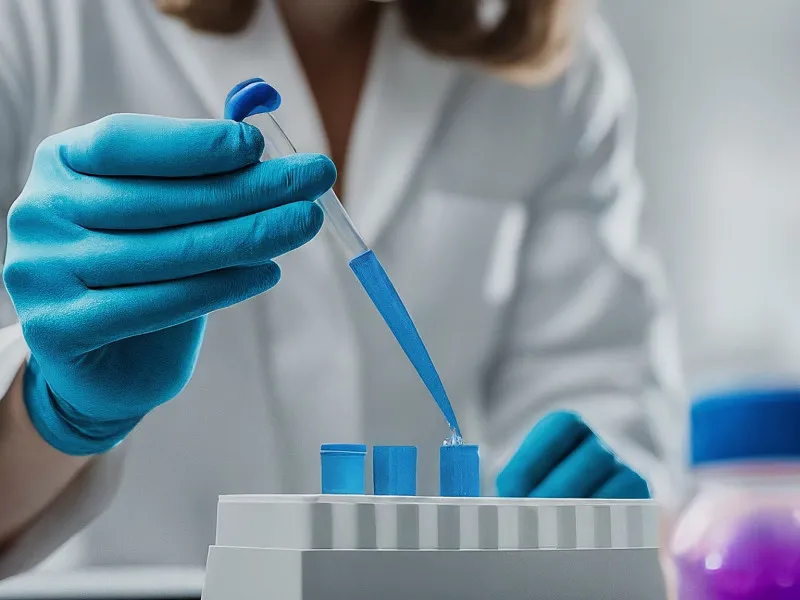
Understanding DNA testing for health has become crucial as more people turn to genetic testing to uncover their ancestry, health risks, and potential medical conditions. But is DNA testing for health accurate? This article delves into the accuracy of DNA health tests and explains what conditions they can identify and how reliable they are in predicting health risks like cancer.
Introduction to DNA Testing
DNA testing involves analysing an individual’s genetic material to understand more about their ancestry, identity, and health predispositions. DNA tests can be conducted for various reasons, including genealogical research, with platforms like find my past and myheritage offering such services. The initial step in these tests often involves identifying initial symptoms, particularly if there is an indication of hereditary conditions. An accurate diagnosis usually starts with a DNA test to pinpoint possible genetic factors.
Understanding DNA Testing: How It Works
DNA testing involves extracting a sample of DNA from saliva or blood. This sample is then sequenced and analysed in a lab. Companies such as those offering ‘dna test ancestry’ or ‘ancestry dna test uk’ tap into these procedures to provide detailed genetic reports. These tests reveal mutations or anomalies in genes that might predispose an individual to various health conditions. For example, specific gene mutations can indicate a higher risk of cancers or other hereditary diseases.
Can DNA Testing for Health Predict My Risk of Cancer?
One of the most significant benefits of health-related DNA testing is its ability to predict the risk of developing certain types of cancer. Genetic mutations like BRCA1 and BRCA2 are closely associated with a higher risk of breast and ovarian cancers. However, while these tests can indicate a higher risk, they are not definitive diagnoses. Not everyone with a harmful genetic mutation will develop cancer, and factors like environment and lifestyle choices also play crucial roles.
What Conditions Can DNA Testing Identify?
DNA testing can identify a variety of conditions beyond cancer risk. These include:
- Hereditary conditions: Conditions like cystic fibrosis, sickle cell anaemia, and Tay-Sachs disease can be detected through DNA testing.
- Carrier status: Tests can determine if an individual is a carrier of a genetic mutation that could be passed onto their offspring.
- Pharmacogenomics: Genetic tests can also predict responses to certain medications, aiding personalised treatment plans.
Top companies, including those focusing on dna test ancestry, often have health add-ons providing a broad personal health profile.
Side Effects and Complications of DNA Testing
While the physical side effects of taking a saliva or blood sample are minimal, the psychological impact can be significant. Learning about one’s genetic predisposition to severe conditions can lead to anxiety and emotional distress. It’s essential to follow up with genetic counselling to understand the results fully and their implications.
Recovery and Rehabilitation from Genetic Testing Discoveries
Upon learning about a genetic predisposition to certain conditions, the recovery process involves psychological adjustments and potential lifestyle changes. This is where genetic counselling becomes crucial. A typical recovery timeline includes:
- Immediate psychological support after receiving results.
- Medical consultations to understand potential next steps.
- Potential lifestyle changes, including diet and exercise adjustments.
- Scheduled follow-ups to monitor any health developments.
Barriers to recovery might include emotional distress and lack of understanding of the results. Overcoming these involves continuous support from healthcare professionals.
Additional Patient Information on DNA Testing
Importance of Early Intervention: Early DNA testing can identify risks before symptoms develop, allowing for preventive measures.
Prevention Tips: Maintaining a healthy lifestyle, undergoing regular health check-ups, and staying informed about one’s family health history can mitigate risks.
When to Seek Medical Advice: If you’re aware of a family history of genetic conditions, or if you have concerns about your health based on a DNA test, consult with a healthcare provider.
Frequently Asked Questions (FAQs)
What should I do immediately after receiving my DNA test results?
Consult with a genetic counsellor or healthcare provider to interpret your results accurately and discuss next steps.
How long does it take to receive DNA test results?
Typically, it can take between 2-6 weeks, depending on the test and the provider.
Are at-home DNA tests as reliable as clinical tests?
While at-home DNA tests can offer valuable insights, clinical tests administered by healthcare providers tend to be more comprehensive and reliable.
What are the signs of complications after DNA testing?
Physically, there are minimal complications. Psychologically, symptoms of anxiety or distress might need addressing with professional help.
How effective is DNA testing in preventing diseases?
DNA tests can reveal predispositions, allowing for early intervention and prevention strategies but cannot entirely prevent diseases.
What should I consider before opting for a DNA health test?
Understand the type of information you will receive, the accuracy of the tests, and be prepared for potential psychological impacts.
DNA testing offers significant insights into our health, but understanding its scope and limitations is crucial. Always consult healthcare professionals to make informed decisions based on your DNA test results.
